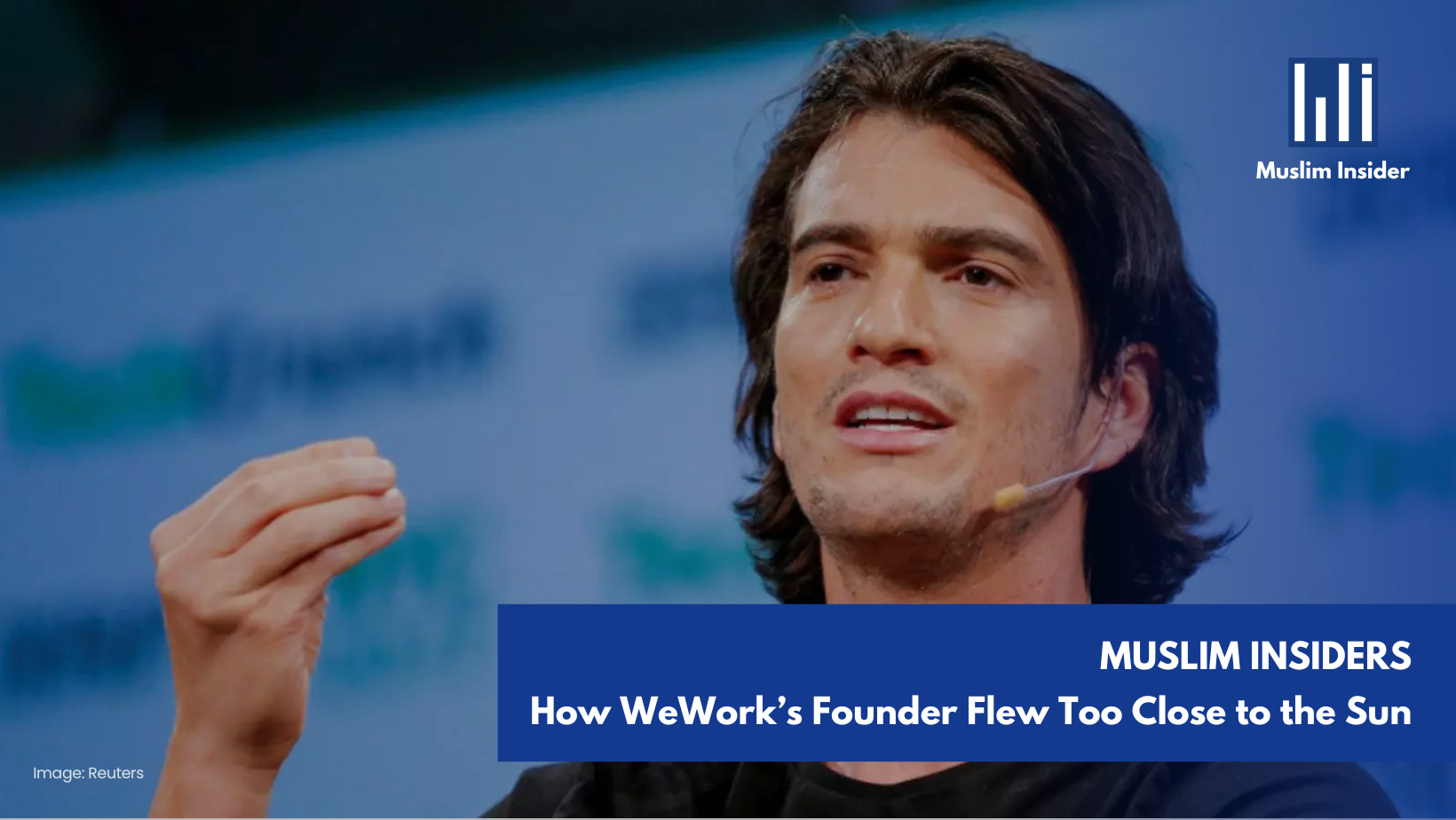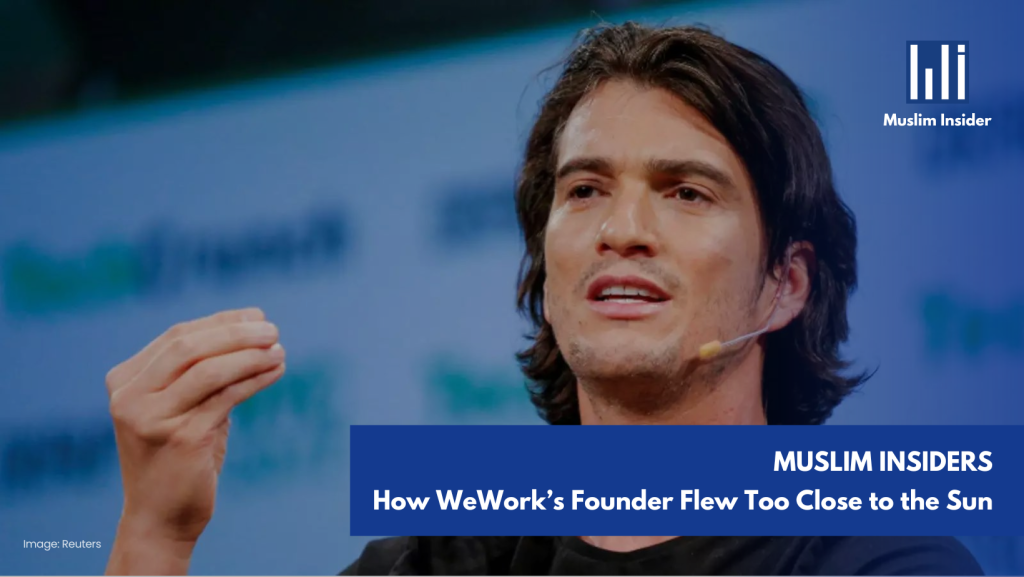How WeWork’s Founder Flew Too Close to the Sun


Some may have heard of the coworking space provider WeWork, one of the world’s hottest startups. Despite that, the company struggled with its financial performance But what are the reasons behind it? Many media outlets said that it was more like a moral lesson than a business story. In the Christian context, it is called a parable, which is used to illustrate a spiritual lesson.
Recently, they filed for bankruptcy. Before WeWork was founded in 2010, the business was called Greendesk in 2008, served free fairtrade coffee, and celebrated kibbutz-style, communal living. He attracted investors, including Softbank, pumping the value up to $47 billion (RM219.49 billion) and expanding rapidly over the next seven years. He expanded the company into 20 countries globally. Also, many important companies have relied on WeWork, including IBM, Microsoft, and Yelp. However, WeWork’s financial losses mounted, losing £200,000 (RM1.1 million) an hour, even though it continued to grow.
The company’s collapse faced a decline of $47 billion starting in early 2019. This happened after a torrent of venture capital funding from Japan’s Softbank, Goldman Sachs, BlackRock and other blue-chip investors.
WeWork has lost more than $1 billion due to operating expenses and other costs. However, the company’s operating expenses relied on repeated cash infusions from private investors over time. To gain more funds, the company tried to sell off portions of the company, liquidate facilities, and renegotiate long-term leases and obligations to address the financial situation. The company’s massive losses and internal affairs have been well covered by the media. One such program is the Apple TV series “WeCrashed,” which featured co-founder Adam Neumann’s extravagant lifestyle before he was fired.

Questions arose about why the company is valued as a tech company. According to the BBC, the company is playing a game of buying long and selling short. This means the company is acquiring a huge amount of long-term office space leases in desirable locations for a long period of time. The goal was to then secure short-term tenants to generate enough income to pay for the expenses associated with those leases and make a profit on top of that.
The issue was more evident when Adam Neumann, the company’s founder, decided to sell shares to the public through an initial public offering (IPO) in 2019. During this process, the company was required to disclose financial information to government authorities, which exposed larger losses than previously believed. Additionally, it revealed an unusual connection between the company’s finances and Neumann’s personal finances, raising concerns about the company’s transparency and financial stability. The IPO attempt in 2019 led to a plummet in WeWork’s value. Neumann is then ousted amid questions about his management style and WeWork’s culture.
Neumann managed to separate his finances from the company and walked away with over a significant billion dollars, while WeWork’s value drastically decreased. Despite his fall, Neumann has invested in other ventures and secured $350 million (RM1.6345 billion). In this parable-like story, Neumann flew too close to the sun, but it wasn’t the wax on his wings that melted.






